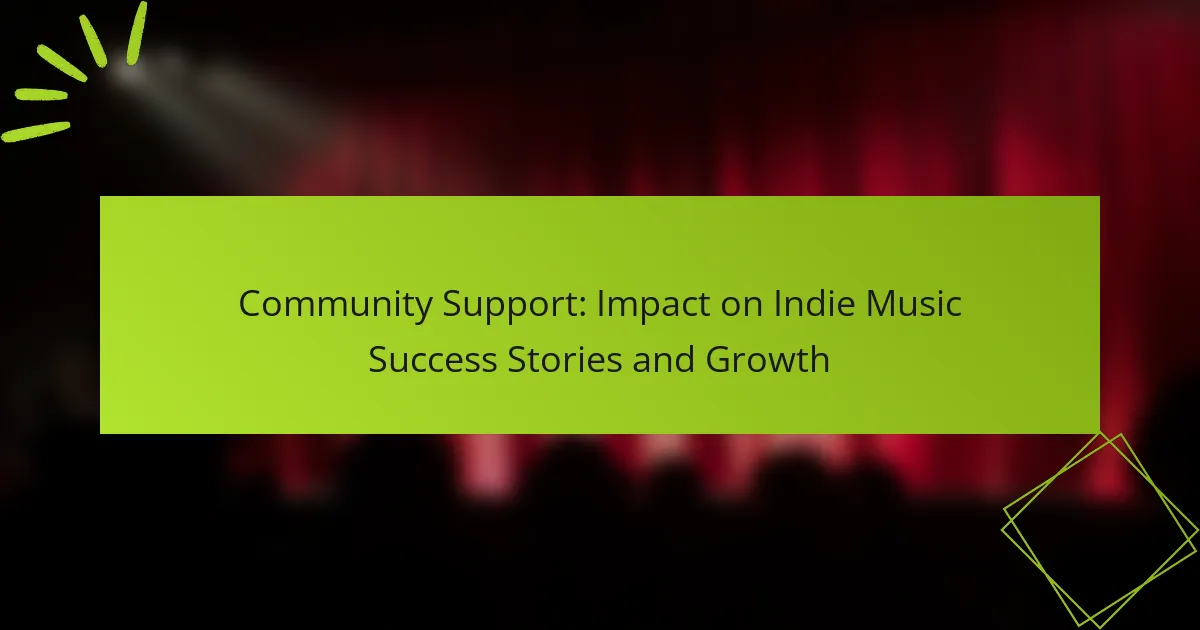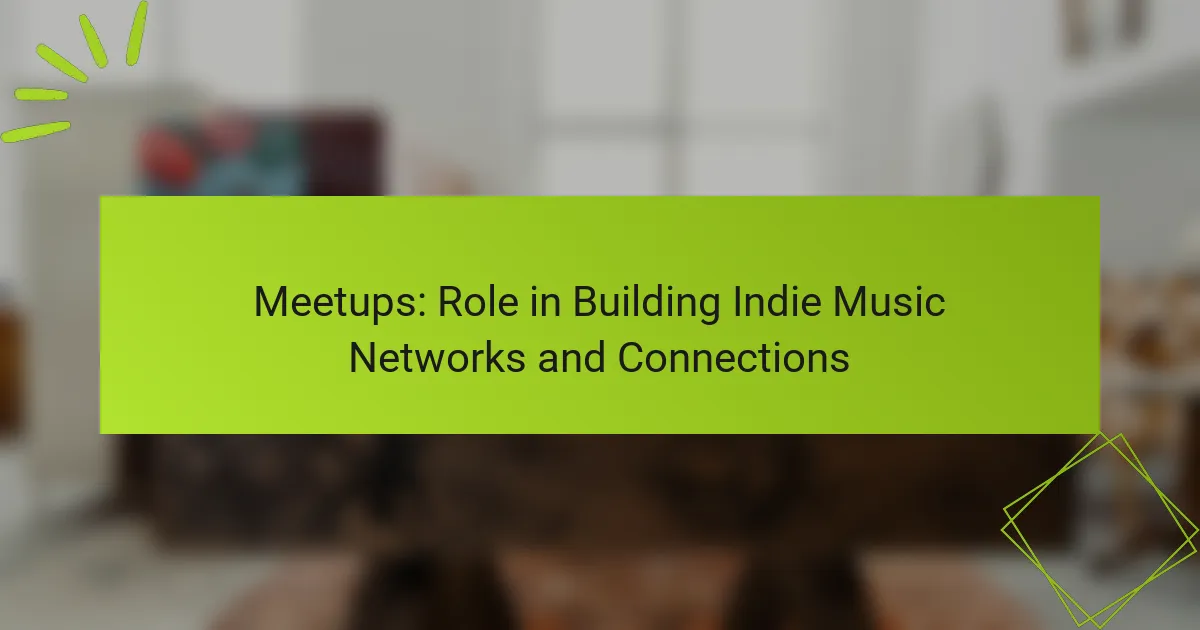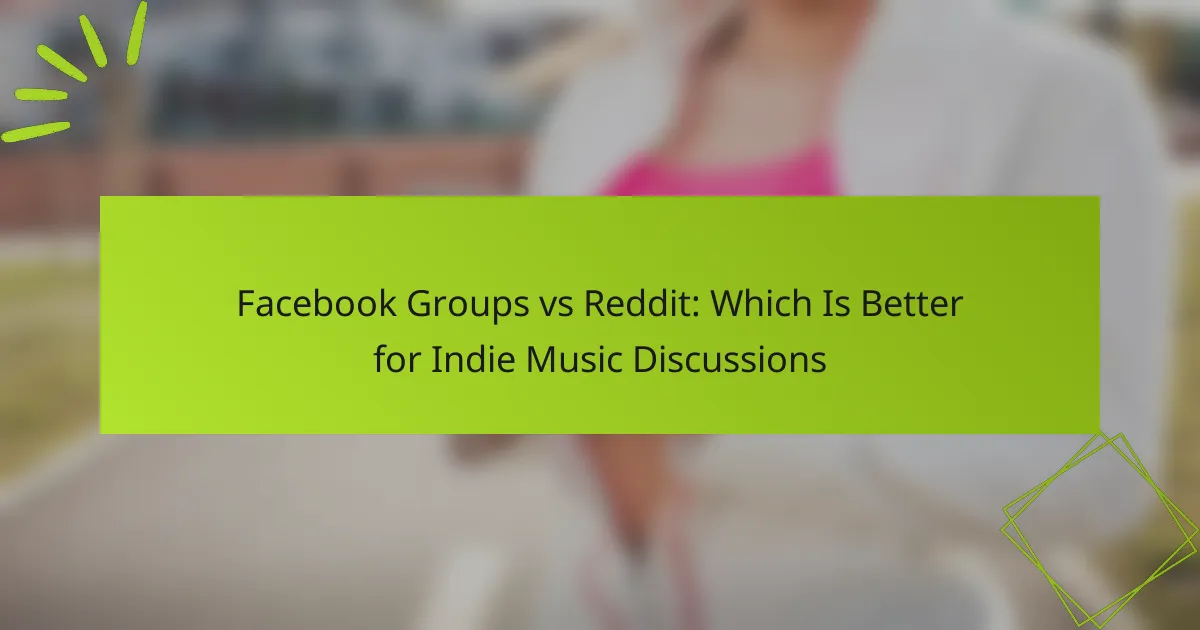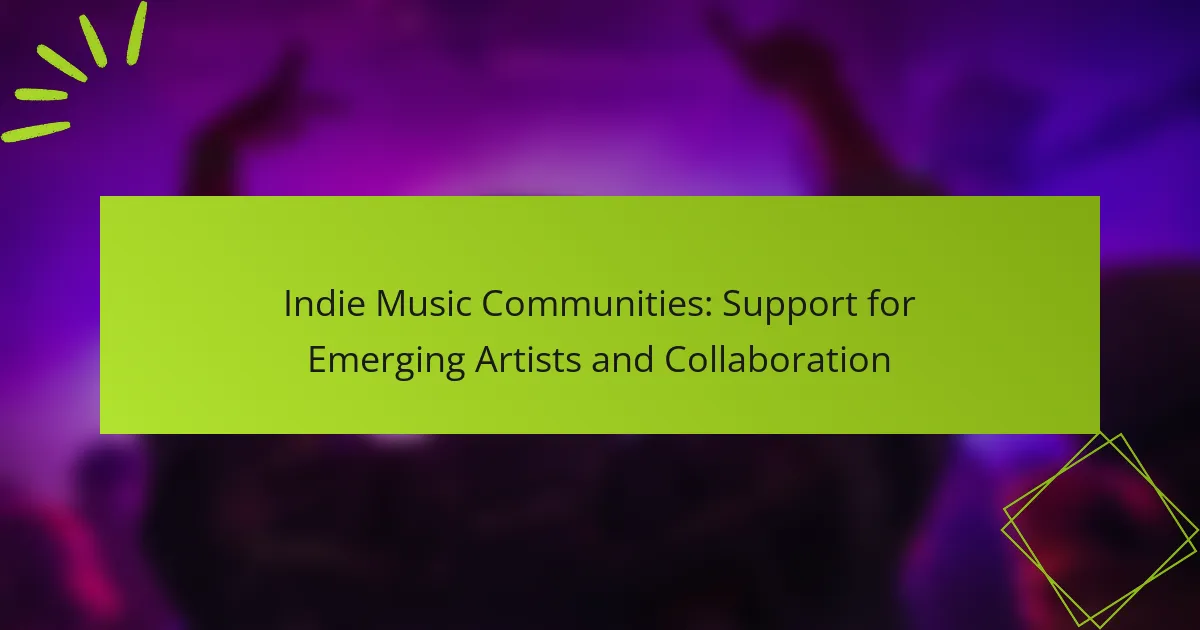Community support is vital for the success of indie music, as it helps forge meaningful connections between artists and their audiences. By leveraging social media, organizing local events, and partnering with businesses, indie musicians can enhance their visibility and growth in a competitive landscape.
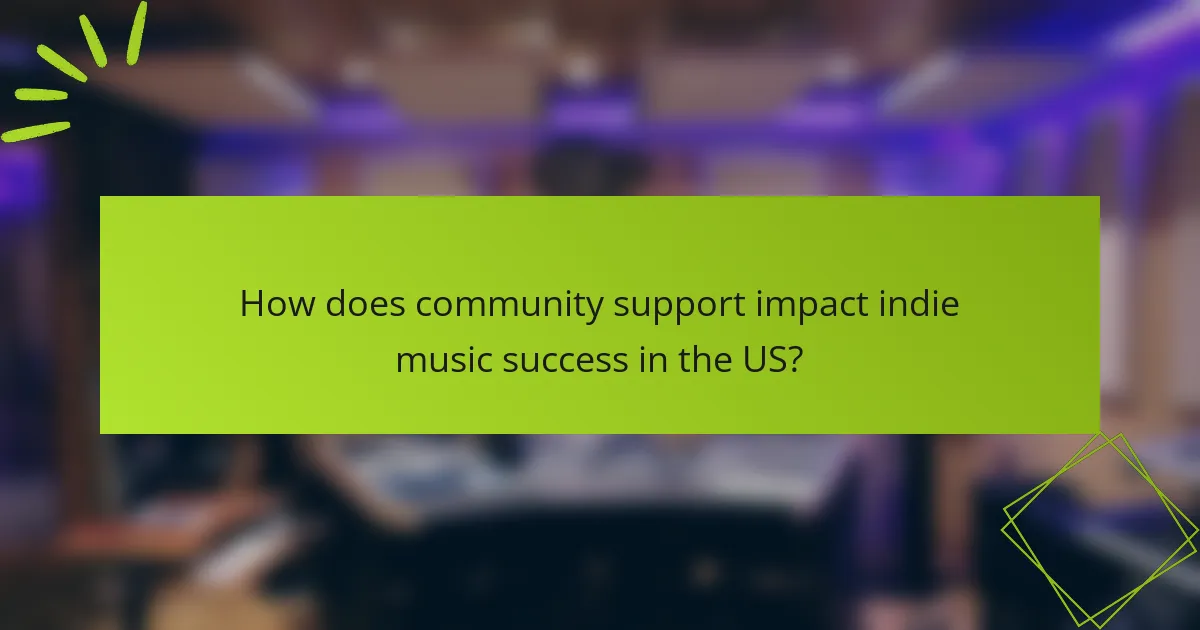
How does community support impact indie music success in the US?
Community support plays a crucial role in the success of indie music in the US by fostering connections between artists and their audiences. This support can lead to increased visibility, financial backing, and collaborative opportunities that are essential for growth in a competitive industry.
Increased audience engagement
Community support enhances audience engagement by creating a sense of belonging among fans. When fans feel connected to an artist, they are more likely to attend shows, share music, and promote the artist within their networks.
For instance, local events such as house concerts or community festivals allow artists to interact directly with their audience, fostering loyalty and encouraging word-of-mouth promotion. Engaging with fans through social media platforms can also amplify this connection, leading to a more dedicated following.
Enhanced funding opportunities
Community support can significantly improve funding opportunities for indie musicians. Crowdfunding platforms like Kickstarter or Patreon enable artists to raise money directly from their fans, often resulting in successful campaigns that exceed initial goals.
Moreover, local businesses and organizations may offer sponsorships or grants to support indie artists, especially if they contribute to the cultural landscape of the community. Artists should actively seek out these opportunities and build relationships with local stakeholders to maximize funding potential.
Stronger artist collaborations
Community support fosters stronger collaborations among artists, leading to innovative projects and shared resources. When artists work together, they can pool their talents and fan bases, creating a more significant impact than they might achieve individually.
Collaborative efforts can include joint performances, co-writing songs, or even sharing studio space. By engaging with other local musicians, artists can expand their creative horizons and increase their visibility within the community, ultimately driving their success in the indie music scene.
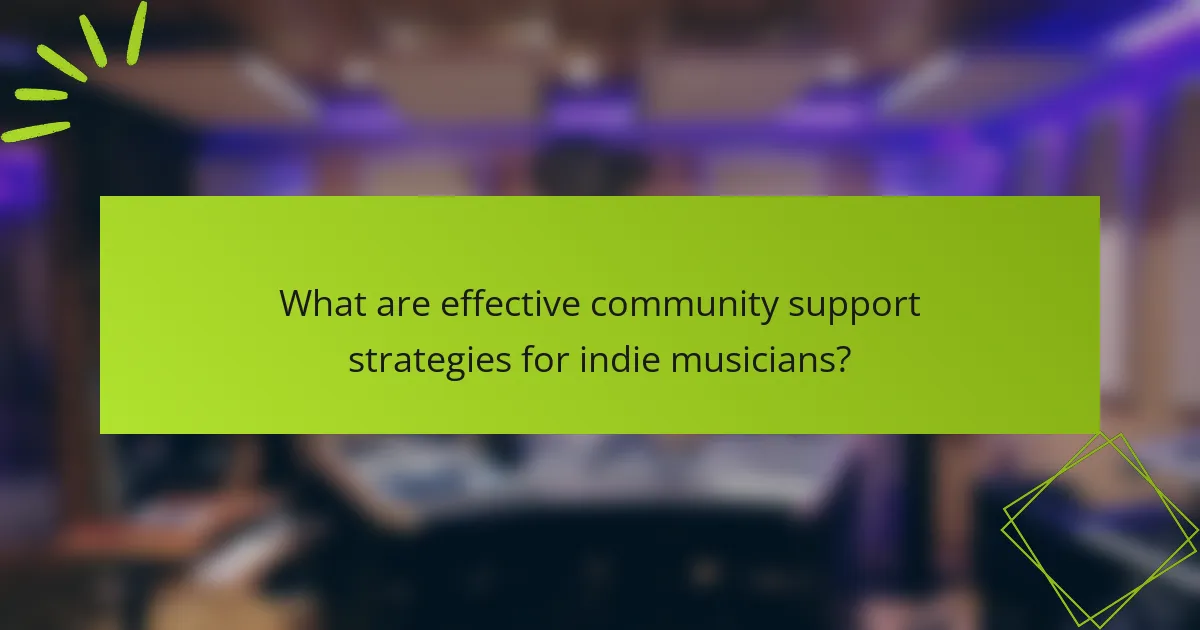
What are effective community support strategies for indie musicians?
Effective community support strategies for indie musicians include leveraging social media, organizing local events, and forming partnerships with local businesses. These approaches create a network that fosters growth, visibility, and engagement within the music community.
Utilizing social media platforms
Social media platforms are essential tools for indie musicians to connect with their audience and promote their music. By regularly posting updates, sharing behind-the-scenes content, and engaging with fans, musicians can build a loyal following. Platforms like Instagram, Facebook, and TikTok allow for creative expression and direct interaction.
Musicians should consider using targeted ads to reach specific demographics, which can be particularly effective for promoting new releases or upcoming shows. Engaging with followers through live streams or Q&A sessions can further enhance community ties and encourage fan participation.
Hosting local events and concerts
Hosting local events and concerts is a powerful way for indie musicians to showcase their talent and connect with their community. These events can range from small acoustic sets in local cafes to larger gigs at community centers. The key is to create an inviting atmosphere that encourages attendance and participation.
Collaborating with other local artists for joint performances can also draw larger crowds and create a sense of camaraderie. Additionally, consider incorporating merchandise sales or donation options to support future events, ensuring sustainability in community engagement.
Building partnerships with local businesses
Forming partnerships with local businesses can significantly enhance the visibility and success of indie musicians. Collaborating with cafes, bars, or shops for live performances or promotional events can provide a platform for exposure while benefiting the business through increased foot traffic.
Musicians should approach local businesses with clear proposals that outline mutual benefits, such as cross-promotion on social media or shared marketing efforts. These partnerships can lead to long-term relationships that support both the artist and the local economy, fostering a vibrant cultural scene.
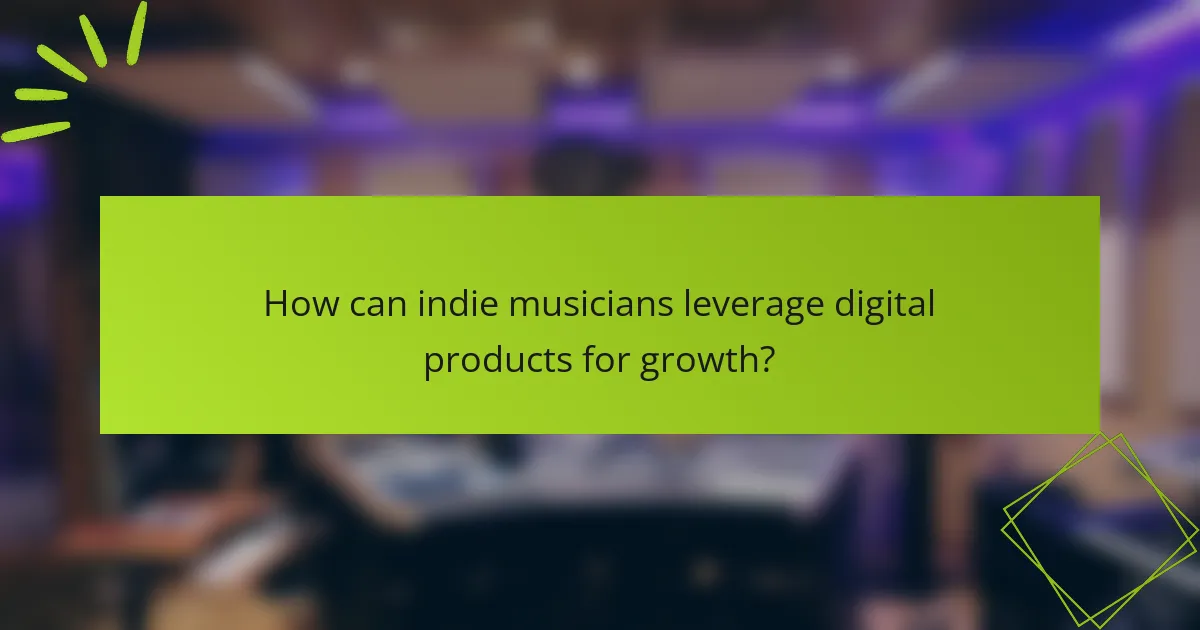
How can indie musicians leverage digital products for growth?
Indie musicians can effectively leverage digital products to enhance their growth by offering unique content and experiences that engage their audience. This approach not only generates revenue but also fosters a loyal fan base.
Offering exclusive music downloads
Exclusive music downloads allow indie musicians to provide fans with unique tracks or albums that aren’t available elsewhere. This can include demos, live recordings, or special remixes that create a sense of exclusivity and urgency.
To maximize impact, consider pricing these downloads between $1 to $10, depending on the content’s perceived value. Promote these offerings through social media and email newsletters to reach your audience effectively.
Creating merchandise through e-commerce
Creating merchandise such as t-shirts, posters, or vinyl records can significantly boost an indie musician’s brand and income. E-commerce platforms like Shopify or Bandcamp make it easy to set up an online store and sell directly to fans.
When designing merchandise, focus on quality and creativity to reflect your music’s identity. Pricing should be competitive, with items typically ranging from $15 to $50. Ensure to promote these products during live shows and through digital channels.
Utilizing crowdfunding platforms
Crowdfunding platforms like Kickstarter or Patreon enable indie musicians to raise funds for projects directly from their fans. This approach not only provides financial support but also strengthens community ties as fans feel invested in the artist’s journey.
When launching a crowdfunding campaign, set clear goals and offer enticing rewards, such as exclusive content or experiences. Successful campaigns often have funding targets between $5,000 and $20,000, depending on the project’s scope. Engage your audience regularly to maintain momentum and excitement throughout the campaign.
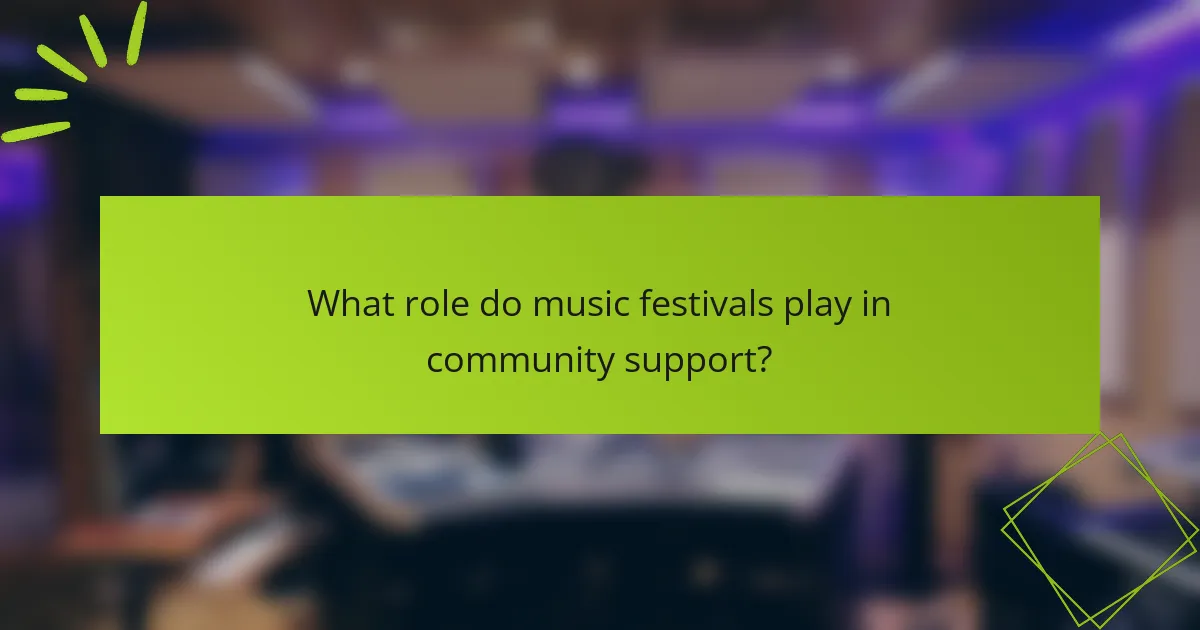
What role do music festivals play in community support?
Music festivals play a crucial role in community support by providing a platform for local artists to gain exposure and connect with audiences. They foster a sense of belonging and pride among community members, while also driving economic benefits through increased tourism and local spending.
Showcasing local talent
Music festivals serve as a vital showcase for local talent, allowing emerging artists to perform in front of larger audiences. This exposure can lead to increased recognition and opportunities for collaboration, helping artists to grow their careers.
For instance, festivals often feature a mix of well-known acts and local performers, creating a diverse lineup that attracts a wider audience. This blend not only highlights local musicians but also encourages attendees to discover new sounds and support their community’s artists.
Facilitating networking opportunities
Festivals provide essential networking opportunities for musicians, industry professionals, and fans. Artists can meet producers, promoters, and other musicians, which can lead to collaborations and new projects.
Additionally, workshops and panel discussions at festivals often cover topics such as marketing, distribution, and the music business, equipping artists with valuable knowledge and connections. Engaging in these activities can significantly enhance an artist’s understanding of the industry and open doors to future success.
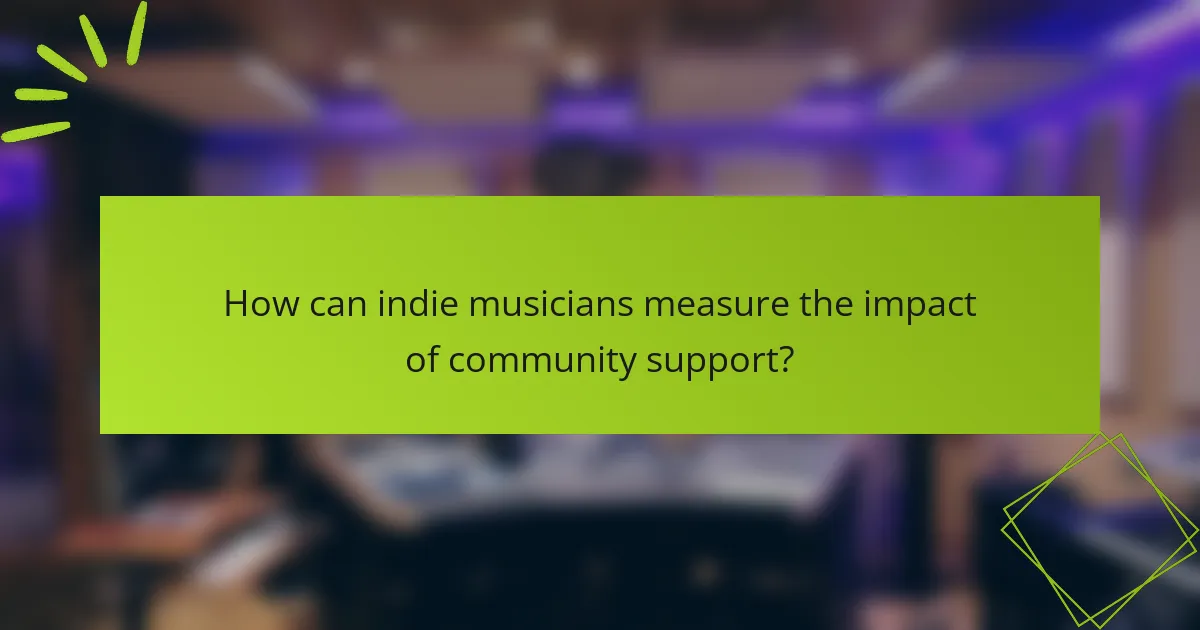
How can indie musicians measure the impact of community support?
Indie musicians can measure the impact of community support through various metrics that reflect engagement and sales. By analyzing social media interactions and sales data, artists can gain insights into how their community influences their success.
Tracking social media engagement metrics
Social media engagement metrics provide a clear picture of how well an indie musician connects with their audience. Key metrics include likes, shares, comments, and follower growth across platforms like Instagram, Facebook, and Twitter. A consistent increase in these metrics often indicates strong community support.
To effectively track these metrics, musicians can use tools like Hootsuite or Buffer, which offer analytics features. Setting specific goals, such as increasing engagement by a certain percentage over a few months, can help in assessing the effectiveness of community outreach efforts.
Analyzing sales data from digital products
Sales data from digital products, such as music downloads, merchandise, and concert tickets, is another vital indicator of community support. By examining trends in sales over time, musicians can identify which products resonate most with their audience and adjust their strategies accordingly.
Using platforms like Bandcamp or Shopify, artists can track sales performance and customer demographics. Regularly reviewing this data can reveal patterns, such as peak sales periods or successful promotional campaigns, helping musicians to optimize their offerings and marketing efforts.
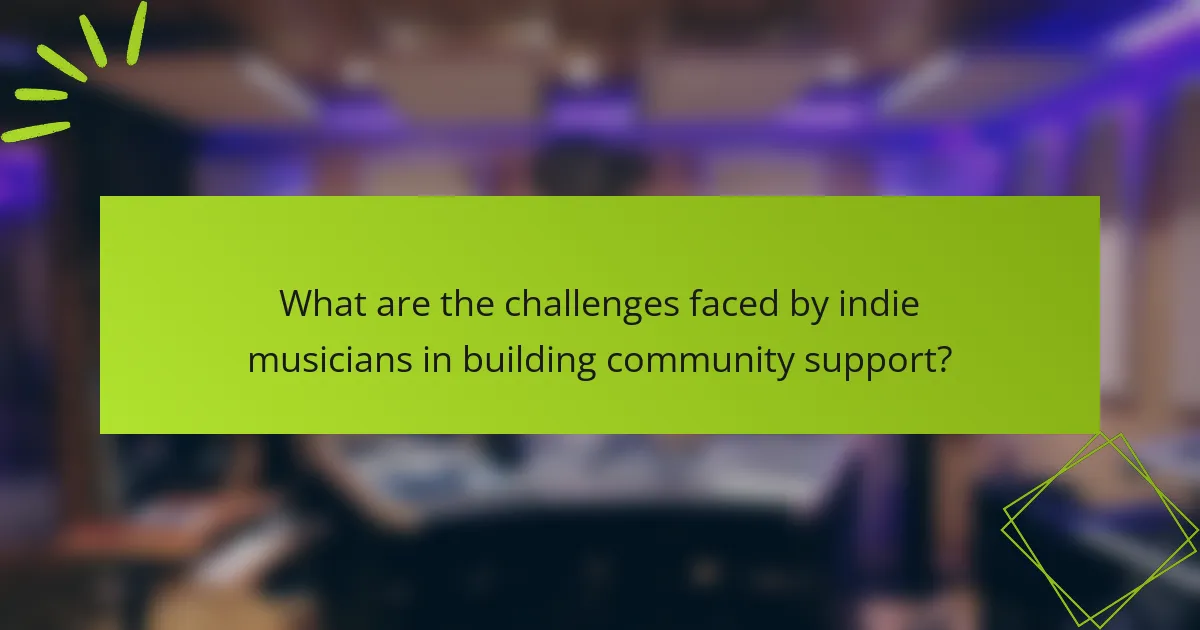
What are the challenges faced by indie musicians in building community support?
Indie musicians often face significant challenges in building community support, primarily due to limited resources, funding, and visibility. These obstacles can hinder their ability to connect with audiences and sustain their careers.
Limited resources and funding
Indie musicians frequently operate with tight budgets, which restricts their ability to promote their music and engage with fans. Without sufficient funding, they may struggle to afford marketing, recording, and touring expenses.
To navigate these limitations, many indie artists turn to crowdfunding platforms or seek sponsorships from local businesses. These methods can provide necessary financial support while also fostering community ties.
Networking with other musicians and local organizations can also help indie artists pool resources, share costs, and create joint events that attract larger audiences. This collaborative approach can enhance visibility and strengthen community bonds.
